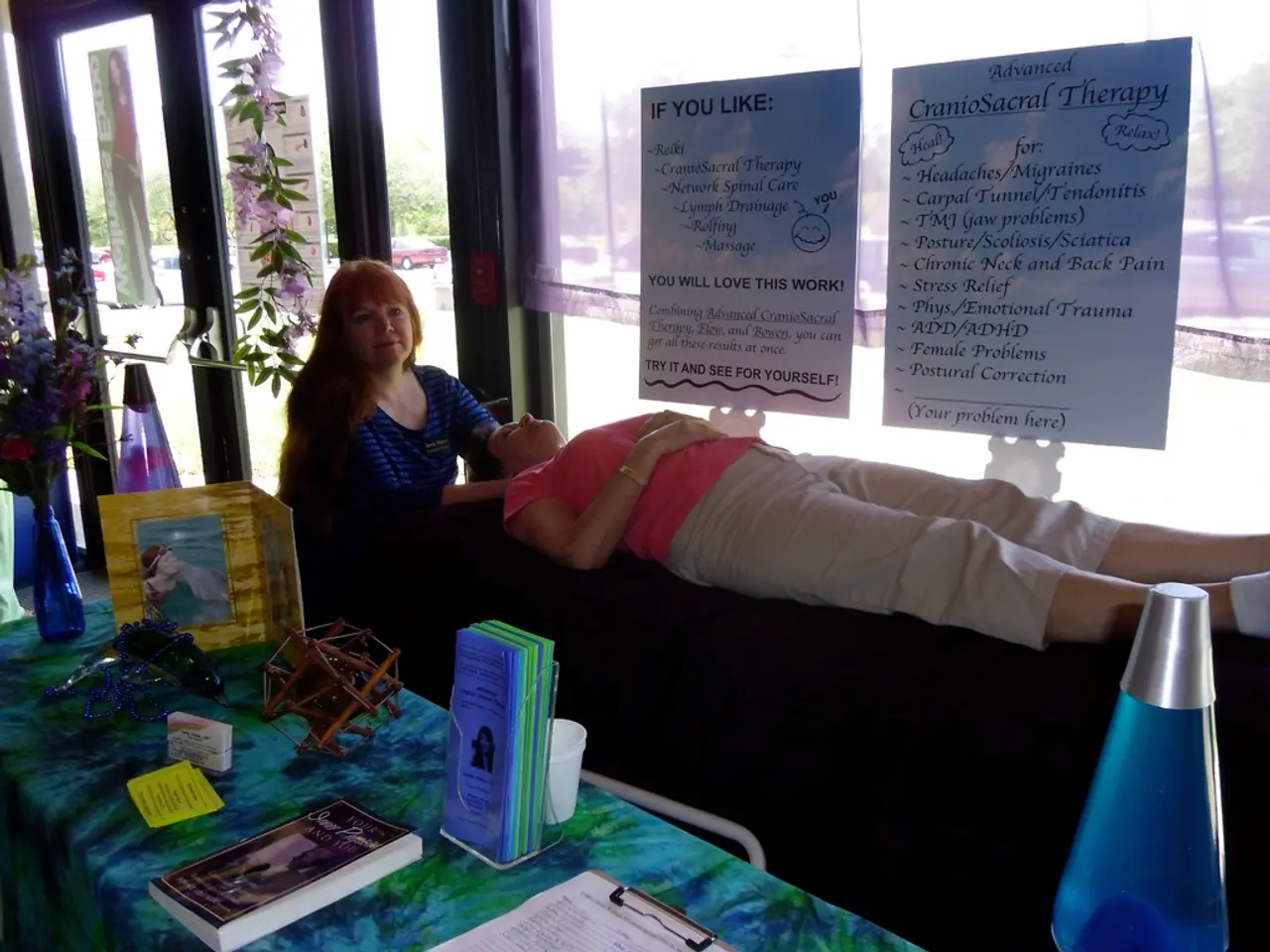Strategies for Asserting Yourself: 8 Brief Tips for Denial
In today's fast-paced world, it's easy to get caught up in the whirlwind of activities, constantly striving to please others and neglecting our own needs. However, it's crucial to remember that saying no is not a sign of weakness, but a step towards self-care and personal growth.
Firstly, it's important to understand that shutting down your feelings through shopping, drinking, or busyness is not a sustainable solution. Your feelings are an integral part of you, and they cannot be escaped. Instead, when overwhelmed, tired, sick, or feeling down, your body is signalling for you to take care, slow down, and be gentle.
Saying no without guilt or apology is a skill that can be developed with practice. Start by saying no to yourself, by reducing your to-do list in order of priority, tearing it in half, and throwing away the bottom half if it's too long. This exercise helps you to prioritise your time for personal growth and self-care.
Feelings of guilt when saying no are common, especially due to habitual tendencies to avoid disappointing others. To cope with these feelings, it's essential to recognise that your worth is not tied to always pleasing others. Setting boundaries is necessary for your mental health. Remind yourself that you are not responsible for other people’s emotions or reactions when you say no.
Building confidence in your reasons for saying no also reduces guilt. When you believe your decision is valid—whether due to lack of time, interest, or energy—it becomes easier to decline requests firmly and kindly. Avoid overexplaining your no, as long justifications can lead to pressure or guilt. Instead, keep your refusal clear and respectful.
Practicing smaller boundary-setting decisions can build your "boundary muscle," making saying no feel more natural and less guilt-inducing over time. Additionally, understanding that feeling guilt stems from old conditioning to prioritise others, not from wrongdoing, can help you reframe these emotions and act in your own best interest without excessive self-blame.
Saying no to running around and yes to being a lighthouse is a way to conserve energy and focus on self-care. The more you protect your time and energy, the more you can help others, take care of yourself, and enjoy life. Simple phrases like "No thank you" or "Thanks for thinking of me, I'm going to pass" are effective ways to say no without needing a detailed excuse.
Unsolicited advice is a situation where saying no is appropriate. Similarly, saying no to fixing, saving, and controlling helps conserve energy and focus on self-care. Say no when there isn't room for another yes, by checking your calendar, to-do list, and head space to determine if it's the right time to take on something new.
Remember, you are allowed to say no even when you aren't busy. Create space for more life and personal growth, rather than more doing. Learning to say no without guilt or apology is a skill that can empower you to live a balanced, fulfilling life, where one day, you'll have time, energy, and attention for big, happy, easy YES.
Adopting a lifestyle that emphasizes personal growth and self-care requires the development of a skill to say no without guilt or apology. This can be achieved by prioritizing personal growth through practicing boundary-setting decisions and learning to say no to unsolicited advice or activities that drain energy.
saying no to certain activities and focusing on education-and-self-development can contribute to overall lifestyle changes that promote personal growth. Such changes can lead to a more balanced, fulfilling life, where one can make big, happy, easy YES to opportunities that align with one's goals.




